#jean jacques dessalines
Explore tagged Tumblr posts
Text



"You must become like your natural enemies cruel and merciless."
Jean-Jacques Dessalines
#black history#black people#blacktumblr#black#black tumblr#pan africanism#black conscious#africa#black power#black empowering#self determination#Jean Jacques Dessalines#haiti revolution#haitians#haiti#decolonization#resistance#anti colonization#black revolution
113 notes
·
View notes
Text

Today In History
Jean Jacques Dessalines was a leader of the Haitian Revolution and the first ruler of an independent Haiti under the 1801 constitution. Jean Jacques Dessalines proclaimed the independence of Haiti on this date January 1, 1804.
Dessalines was brought to the French West Indian colony of Saint-Domingue (Haiti) as a slave. He worked as a field hand for a black master until 1791, when he joined the slave rebellion that broke out in the colony amid the turmoil caused by the French Revolution. In the decade that followed, he distinguished himself as a lieutenant of the black leader Toussaint Louverture, who established himself as governor-general of Saint-Domingue with nominal allegiance to Revolutionary France.
When Toussaint was deposed in 1802 by a French expedition sent by Napoleon Bonaparte to reconquer the colony, Dessalines at first submitted to the new regime. In 1803, however, when Napoleon declared his intention to reintroduce slavery (which had been abolished by the French National Convention in 1794), Dessalines and other black and mulatto (of mixed European and African descent) leaders rose in rebellion.
CARTER™ Magazine
#carter magazine#historyandhiphop365#carter#wherehistoryandhiphopmeet#history#cartermagazine#today in history#staywoke#blackhistory#blackhistorymonth#Jean Jacques Dessalines#haiti
204 notes
·
View notes
Text

Ayiti 1805
#ayiti#1805#toussaint louverture#queen nanny maroons#jean jacques dessalines#queen aminarenas#caribbean#africa#melanin#melanated#haiti#haitian#aboriginal people#indigenous#olmecs#dominican#kassav#zouk music#free the political prisoners#free the land#marcus garvey#jamaica#black man#black woman#black children#black economics
50 notes
·
View notes
Text
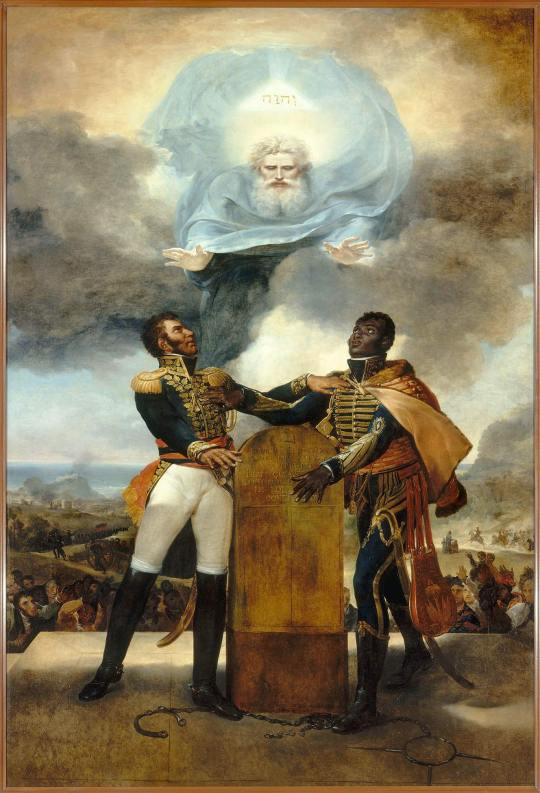
Le Serment des Ancêtres. Par Guillaume Guillon-Lethière.
#Guillaume Guillon-Lethière#Guillaume Guillon Lethière#Jean-Jacques Dessalines#jean jacques dessalines#jacques I#emperor of haiti#monarquías americanas#haiti#monarquias americanas#révolution haïtienne#haitian revolution#french revolution#révolution française
16 notes
·
View notes
Text
Why Haitian Independence should be important to Black people around the world
January 1, 1804 January 1, 1804 On this day we celebrate defeating Napoleon’s army, affirming our freedom and establishing the first free Black nation on in the western hemisphere. L’Union Fait La Force
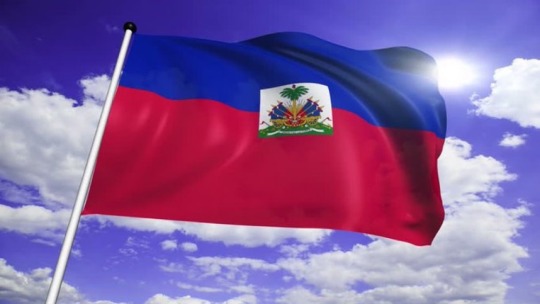
View On WordPress
#1804#A Tribe Called Fit#Eddy “Precise” Lamarre#haiti#Haitian Culture#Haitian independence#independence#Jean Jacques Dessalines#kahlid lamarre#Napoleon#nasir lamarre#Nya Lamarre#Precise#shaheim lamarre#Toussaint Louverture
9 notes
·
View notes
Text
Commémoration de l’assassinat de Dessalines : le CPT dépose une gerbe de fleurs au MUPANAH
À l’occasion de la commémoration de l’assassinat de Jean-Jacques Dessalines, le Conseil Présidentiel de transition a rendu un vibrant hommage au père fondateur de la nation haïtienne. Ce jeudi 17 octobre 2024 marque le 218ème anniversaire de l’assassinat lâche de l’Empereur Jacques 1er. Comme c’est le cas chaque année, les autorités commémorent cette date tout en faisant appel à l’unité…
0 notes
Text
The Haitian Revolution was the first modern War of National Liberation:
Contemporary with the French Revolution and the most egalitarian and forward-looking of the events of the late 18th and early 19th Century, the Haitian Revolution was an event far ahead of its time. It is the first modern War of National Liberation won against a white supremacist power that devoted the full weight of its power. Like other wars of national liberation it included wholesale destruction on a grander scale by Jean-Jacques Dessalines, the point where all the lurid tales of evils done against white people by Black people seemed to move from propaganda to fact because at a blunt level the white French population of Haiti *was* utterly annihilated down to the women and children in a genocidal massacre.
Later generations would glory in such events and would have entire propaganda depots to claim when Moscow starves Ukrainians and Kazakhs in the name of glorious proletarian revolution that a few million dead people were a price worthy of paying. Dessalines, the man who won Haiti its independence, did not have the benefit of such industries and was a Black man who did this to white people in an age of white supremacy, and for that moment so far ahead of its time Haiti has paid the price ever since.
However much one can understand why suffering in the hell of sugar plantations at the hand of the French Empire created the conditions for Dessalines' genocidal massacre, the reality is that it became the archetype by which Haiti was known, and all the more noble dreams that he and Toussaint L'Ouverture stood for were occluded by self-serving lies with a core of hard truth.
#lightdancer comments on history#black history month#military history#haitian revolution#toussaint louverture#jean jacques dessalines
0 notes
Text
Give it up for year 220!
🇭🇹Haitian History🇭🇹
219 years ago today, the first Haitian flag was created by Jean-Jacques Dessalines and sewn by his goddaughter Catherine Flon.
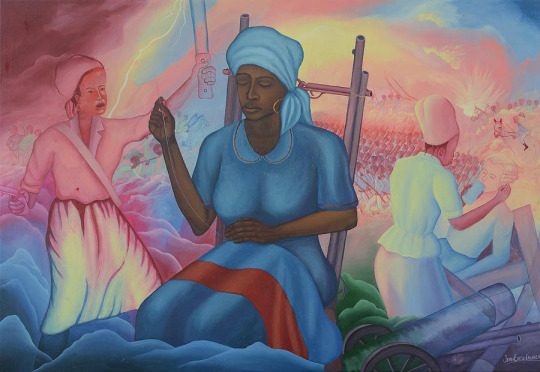

Dessalines removed the white strip of the French flag to signify the union of the Black and mulatto populations (the latter guided by Alexandre Pétion) during the Revolution. This also was significant as it symbolized the coming removal of the white colonists—and by extension, white people—from Ayiti. Dessalines had the motto "Liberté ou la mort" added for use in his army. Flon is an important figure of Haitian Flag Day and the Haitian Revolution all together.

Haiti was the first independent nation in Latin America, the first post-colonial independent black-led nation in the world, and the only nation whose independence was gained as part of a successful slave rebellion.
Bonus: the flag over the years

208 notes
·
View notes
Text

On this day, Jean-Jacques Dessalines, a leader of the Haitian Revolution and the first ruler of an independent Haiti, was assassinated in 1806.
Jean-Jacques Dessalines led the revolution against France, defeating French troops at the Battle of Vertières in November 1803. France then withdrew its remaining 7,000 troops from the island. On January 1st 1804, Dessalines officially declared the former colony's independence as a free African republic, renaming it "Haiti" after its indigenous name. He also freed all slaves making Haiti the first country in the Americas to permanently abolish slavery. Dessalines became the first Emperor of Haiti in October 1804. He was made Emperor for life in 1805, which proved accurate but short-lived as he was assassinated by his political rivals in October 1806.
"..my name has become a horror to all those who want to continue slavery, and depots and tyrants utter it only by cursing the day that I was born."
KEEP EYES ON HAITI!
Stand down Kenya!
Stand up Africa!
Viva the Haitian Masses!
Viva the Haitian Revolution!
Viva the Africa Revolution!
Forward to Pan-Africanism
#blacktumblr#black history#black liberation#african history#jean-jacques dessalines#aaprp#all african people’s revolutionary party
82 notes
·
View notes
Text
“An article published in Haiti's Political and Commercial Gazette presciently analyzed the broader significance of the changes U.S.-Haitian trade relations underwent under Jefferson. The author of the article wrote that the United States would one day ‘occupy a distinguished rank among the masters of the sea.’ Foreseeing the inevitable decline of France and England, the writer warned, ‘The same thing will befall the powers that are presently dominant; they will undergo an unmistakable decline, while the United States will assume the rank to which it is destined. But this era will become deadly for the Caribbean. It will simply change masters. It will come under the yoke of the United States.’ As for ongoing U.S. slavery, ‘in the states of the south, [it] is a fire that smolders under the ashes, the eventual explosion of which will one day make tremble the hardened and deaf masters who still maintain it, despite the prudent advice of their fellow citizens of the north.’ Like Boisrond-Tonnerre, who observed that the ‘key to liberty’ for the still enslaved across the Americas could be found ‘in their own hands,’ the writer from the Gazette prophesied that one day ‘some audacious avengers will reclaim with interest their natural rights that have been violated.’ While most Haitians believed that France was their greatest enemy, this article asked the Haitian people not to ignore or dismiss the serious danger next door in North America:
[France's] attempts will come crashing down like the waves of the sea at the foot of the rock of our independence, and from the mountains our rescue squad will descend upon them. But a more hidden danger, and one far less apparent, because it is still distant for now, threatens us anyway. It will not be from Europe that our ills must come, if we are to ever experience them; it will be from the continent of the United States: their proximity, the constant comings and goings of their citizens in our ports, the ambitions that they will bring with them, if our government does not restrict them, must open our eyes to the plots that they may one day attempt against us.
“The writer did not seek ‘to place a cloud over the conduct of the Americans, nor do I think at all that, either the present government or the individuals who are linked to it through commercial relations with that country, have thus far had any plans to dominate us, nor to meditate on our enslavement.’ Yet, he said, ‘it is no less true that the possibility of such a combination could arise from a concurrence of circumstances, if ever the United States were to erect itself to become a maritime power.’ [42]
“Imperial rage followed the publication of this astonishingly prescient article. Dessalines ordered Christophe to discover the identity of the author and to have him sent to Marchand/Dessalines immediately. Dessalines worried that openly and publicly criticizing the United States might propel the trade embargo being debated on the floors of Congress. [43] Christophe soon learned from the empire's printer, Pierre Roux, that the author was Joseph Rouanez, the official English translator in the empire and editor of the Gazette. [44] Dessalines must not have punished the newspaperman too harshly. Rouanez continued to work as editor of the Gazette; and despite Dessalines's evident displeasure, events on the ground made it difficult to deny the new geopolitical threat Rouanez outlined.”
from The First and Last King of Haiti: The Rise and Fall of Henry Christophe by Marlene L. Daut
Additional citation: "Du Cap," Gazette politique et commerciale d'Haïti, Oct. 17, 1805, 175. 41.
#my jaw dropped#1805!#kasia reads#bookblr#reading#books#quotes#history#haitian history#black history#american history#haiti#Henry christophe#jean-jacques dessalines#Marlene L. Daut#2020s#2025#read in 2025#imperialism#american imperialism
5 notes
·
View notes
Text

Jean-Jacques Dessalines Painter: Ulrick Jean-Pierre
35 notes
·
View notes
Text
al things considered — when i post my masterpiece #1340

first posted in facebook august 23, 2024
guillaume guillon-lethière -- "le serment des ancêtres" [i.e., "the oath of the ancestors"] (ca. 1823)
"you may not always have a comfortable life and you will not always be able to solve all of the world's problems at once but don't ever underestimate the importance you can have because history has shown us that courage can be contagious and hope can take on a life of its own" … michelle obama
"'the oath of the ancestors,' painted in 1822 by the french artist guillaume lethière, is a heroic vision of the birth of a nation, though not one he ever called home. a towering canvas depicts generals alexandre pétion and jean-jacques dessaline, heroes of the haitian revolution, in crisp military regalia. their hands rest on a stone inscribed with the ideals of their new freedom; broken shackles and chains lay at their feet. their eyes are cast to the heavens, where a billowy god figure bestows divine grace upon them from above. lethière made it as a gift to the nation, and as a gesture of his solidarity with rising abolitionist and liberation movements. but it’s also an emblem of the artist’s own tangle of paradoxes. lethière was born in 1760 in the french colony of guadeloupe, where his mother, marie-françoise pepeye, who was mixed race, had been enslaved. his father, pierre guillon, a wealthy white sugar plantation owner, didn’t officially recognize lethière as his own until later in life, but doted on him nonetheless. guillon took his son to paris as a teen, where he became a central figure in both the thriving mixed-race creole community and the french art establishment. then, not long after his death in 1832, he was all but forgotten" … murray whyte
"for the 21st century viewer, the sight of the two men of color gazing worshipfully upward at a white god is both offensive and painfully embarrassing although a neoclassical artist trained in europe could hardly be expected to visualize god in any other way. the notion of casting morgan freeman as god was still nearly two centuries in the future" … susan wood
"hope is not blind optimism. it's not ignoring the enormity of the task ahead or the roadblocks that stand in our path. it's not sitting on the sidelines or shirking from a fight. hope is that thing inside us that insists, despite all evidence to the contrary, that something better awaits us if we have the courage to reach for it, and to work for it, and to fight for it. hope is the belief that destiny will not be written for us, but by us, by the men and women who are not content to settle for the world as it is, who have the courage to remake the world as it should be" … barack obama
"i ALways fear the worst, but continue to hope for the best" … al janik
#guillaume guillon-lethière#le serment des ancêtres#the oath of the ancestors#michelle obama#hope#murray whyte#alexandre pétion#jean-jacques dessaline#haitian revolution#mixed race#susan wood#a white god#barack obama#fear the worst#hope for the best#al things considered
3 notes
·
View notes
Text

Illustration from An Historical Account of the Black Empire of Hayti, by Marcus Rainford, 1805.
“Revenge taken by the black army for the cruelties practiced on them by the French”.
8 notes
·
View notes
Text
youtube
#kassav#melanin#ayiti#black music#black family#black culture gettin exploited#haiti#haitian#1865#caribbean#toussaint louverture#jean jacques dessalines#melanated#black art#black panther party of self defense#free the black community#free the political prisoners#free your mind#soul food#1787#Youtube
2 notes
·
View notes
Text
October 8, 1804
Jean-Jacques Dessalines becomes the first emperor of Haiti.
0 notes
Text

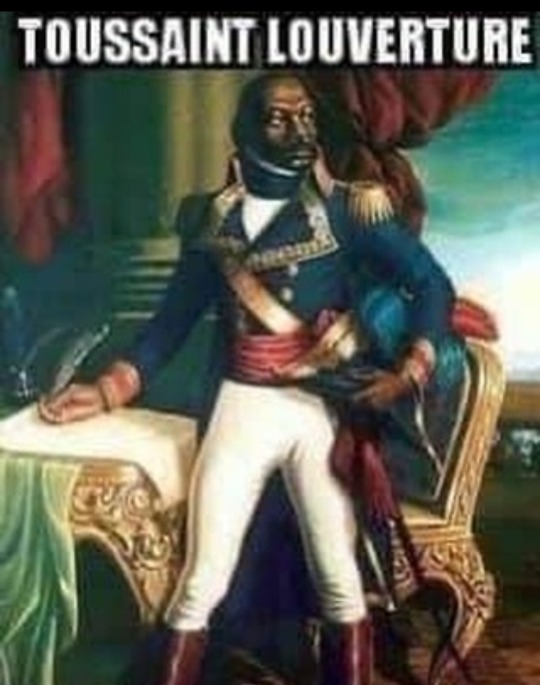

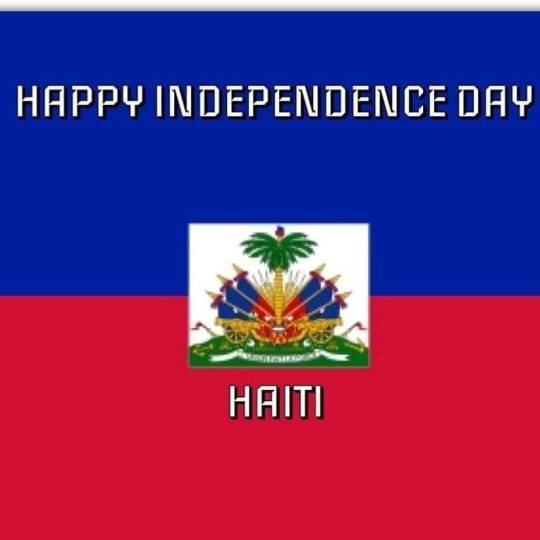
Jan.1st, A Super Powerful Day for "Black American/Haitian History!!"
The 1st Black country that fought back on the oppression of slavery & won in the Americas!!! (Jan.1st,1804)
13 years of war with the biggest armies of the world at that time to conquer❤❤❤
We used UNITY, STRATEGY, & VOODOO
To celebrate the New Year, know that you are celebrating , "A Black Empire" founded by Emperor Jean Jacque Dessalines who paved waves of inspiration for Nat Turner, Marcus Garvey, and many others!!!
7K notes
·
View notes